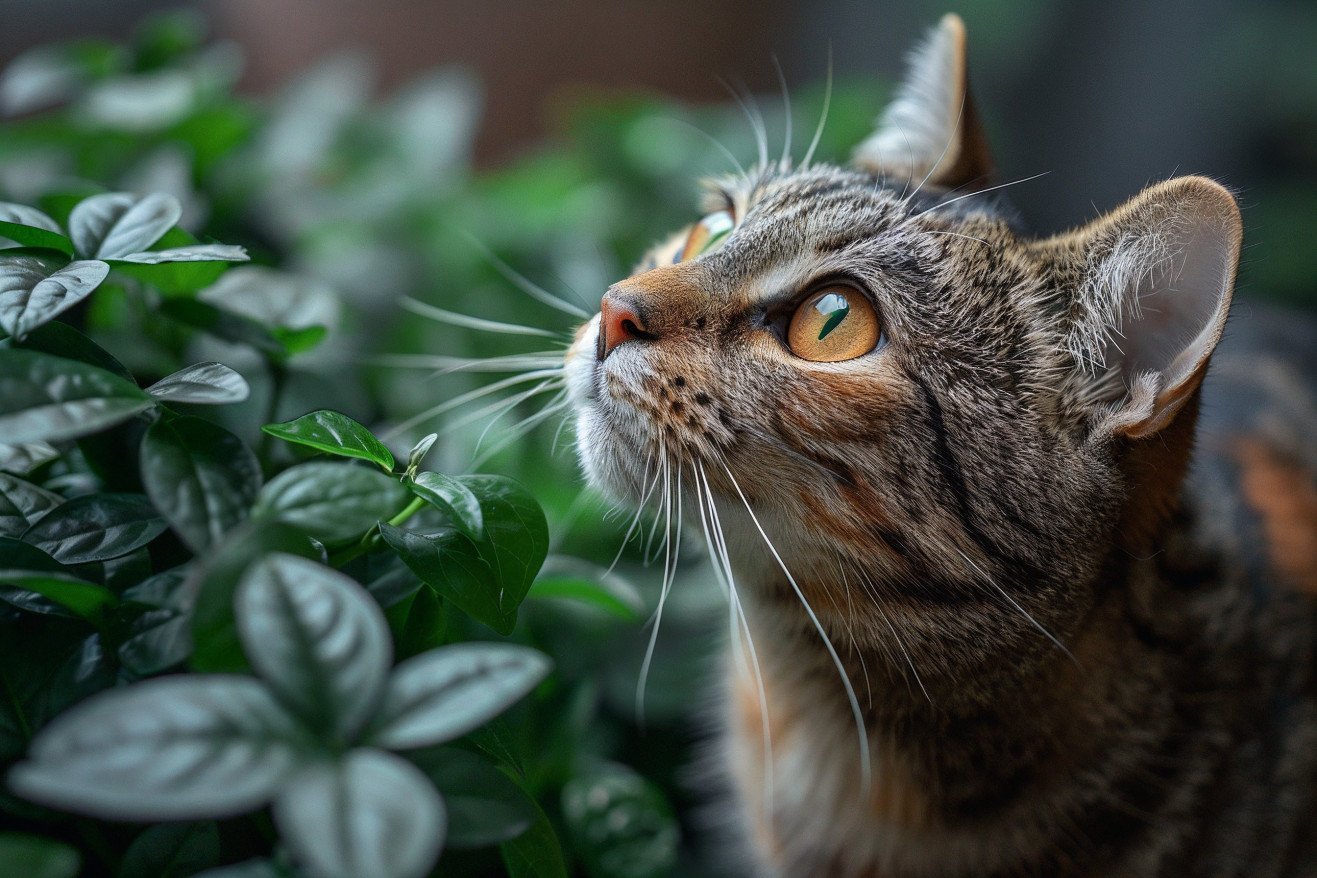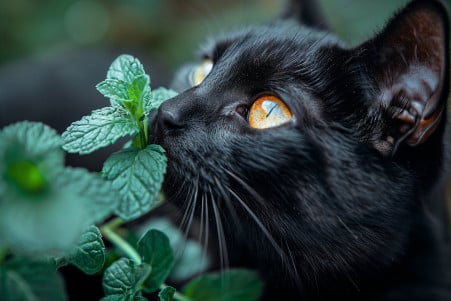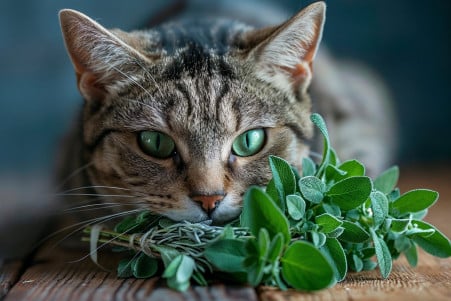Is Silvervine Safe for Cats? A Scientific Look
6 June 2024 • Updated 6 June 2024

If you have a cat, you've probably heard of silvervine, but you may be wondering if it's safe to give to your furry friend. Silvervine is safe and non-addictive for cats as long as it's used in moderation. The active ingredients in silvervine cause a catnip-like "high" by binding to receptors in cats' brains, leading to sniffing, licking, head-shaking and body rolling for 5-30 minutes.
This article will summarize a number of studies in the fields of veterinary science, animal behavior, and toxicology to help you understand what happens when cats are exposed to silvervine. Topics will include the chemical makeup of silvervine, how it works in a cat's body, and the potential risks and benefits based on scientific research. By the end, you'll know whether or not it's a good idea to give your cat silvervine.
Is silvervine safe for cats?
How to Use and Introduce Silvervine to Cats
Silvervine is available in a variety of forms, including solid sticks, shredded pieces, or powdered. Regardless of the form you choose, it’s best to introduce silvervine to your cat in small amounts, such as 1/4 teaspoon of powder during playtime. You can sprinkle the silvervine on the floor, cat beds, scratchers or toys to help your cat satisfy their natural urges to play and explore.
Silvervine sticks or solid pieces can also provide dental benefits as cats chew on them, which can help remove tartar. That said, it’s important to supervise your cat while they’re using silvervine and to limit their exposure to the plant to 30 minutes at a time to prevent overstimulation. As with catnip, it’s important to use silvervine in moderation.
Is Silvervine Safe for Cats?
Silvervine can have a number of positive effects on cats, from stress relief to increased activity to dental health. According to Munchiecat, silvervine is an excellent environmental enrichment tool that can help awaken a cat's natural prey drive and playful behaviors. The compounds in silvervine, such as actinidine and iridomyrmecin, activate cats' sensory neurons, which can cause them to roll, meow, and become more active.
Studies have shown that silvervine is more effective than catnip, with approximately 80% of cats responding to it. While there is limited information on whether cats can become addicted to silvervine, Great Pet Care explains that the positive impact of using silvervine for environmental enrichment outweighs the potential risks, and there have been no reports of cats being harmed by silvervine when it's used as directed.
Potential Risks and Safety Precautions of Silvervine
The primary danger of silvervine comes from cats chewing on the sticks, which can lead to choking if they swallow any large or jagged pieces. MichuPet notes that silvervine sticks should be used under supervision and replaced when they become heavily chewed. As with catnip, it's important to use silvervine in moderation, especially since different cats may have different or stronger reactions to it.
It's a good idea to talk to your vet before introducing silvervine, especially if you have a kitten, a cat with a health condition, or a cat who is taking any other medications. The Tiniest Tiger recommends this as a safety precaution. You should also make sure to supervise your cat while they're using silvervine. While silvervine isn't addictive, Cats.com advises that you should limit the amount of time your cat spends with it to prevent them from becoming desensitized to it.
When you're looking for silvervine products, it's important to make sure you're getting organic, pure products from reputable sellers. This will help ensure that the product you get contains the right plant species, Actinidia polygama, and will provide a safe and effective experience for your cat.
Where to Find Safe, High-Quality Silvervine Products
When shopping for silvervine products for your cat, make sure to buy organic, all-natural products from well-known pet retailers or online stores. Floppycats recommends that the product label clearly lists Actinidia polygama, the specific type of kiwifruit that contains the compounds that make silvervine effective.
You should also make sure that the product is fresh, potent, and made with durable materials that can stand up to your cat's rough play. The PMC study determined that dried silvervine leaves and gall fruits are the most potent and effective forms for cat enrichment. You should also stay away from products that may contain regular kiwifruit, as they won't have the same properties.
When you're buying silvervine, make sure that the manufacturer is transparent about where the product comes from and how it's made. Vetstreet also notes that the fresher the silvervine, the more potent it will be for your cat, and that many reputable brands can provide information about the freshness and purity of their silvervine products.
How to Grow and Harvest Silvervine
Silvervine (Actinidia polygama) is a fast-growing, deciduous vine that is native to East Asia. Gardenia.net notes that it grows best in full sun to partial shade and well-drained, fertile soil. The most potent parts for cats are the gall fruits and green leaves, especially during May-August.
Meowy Janes describes the highly potent silvervine powder as being made from the ground gall fruits of the vine, with a whole handful of fruits needed to make just a pinch of powder. Meanwhile, drying the leaves increases their desirability and impact on cats, much like physical manipulation, as research published in iScience has found.
Growing silvervine at home can be a way to ensure a renewable supply of cat enrichment, but Vet Practice Magazine warns that caution is necessary when it comes to harvesting. The compounds that are active in silvervine mean it’s a popular choice for cat parents, but it’s important to use it responsibly to keep cats safe and healthy.
Conclusion: How to Think About Silvervine for Cats
Silvervine is thought to be safe and non-addictive for cats as long as it is used in moderation. It can help cats in a number of ways, from reducing stress and anxiety to increasing activity levels to supporting dental health. However, it should be used with caution and under the guidance of a vet, especially for kittens and cats with health conditions.
It's also important to make sure that the silvervine you buy is high quality and comes from a reputable source. People who want to try it out may want to consider growing and harvesting their own silvervine, but even this should be done with care to ensure that the plant is safe for cats.


